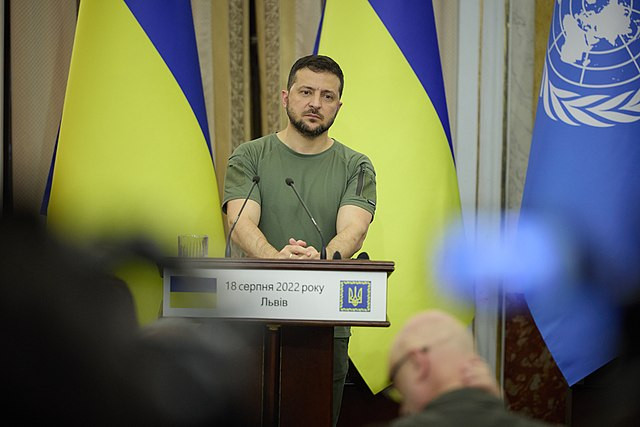A Ukrainian drone attack on Russia's Orenburg gas processing plant has forced neighboring Kazakhstan to slash output at one of its largest oil and gas fields by as much as 30%, marking one of Kyiv's deepest strikes yet into Russian territory and disrupting regional energy supply chains. The strike coincided with President Donald Trump's latest remarks suggesting that Ukraine "may have to give up land for peace," signaling renewed debate over how the war might end after nearly four years.
Two industry sources told Reuters that the Orenburg plant, operated by Russia's state-owned Gazprom, suspended gas intake from Kazakhstan following the attack. Kazakhstan's Energy Ministry confirmed that the suspension led to a production cut of roughly 25% to 30% at the Karachaganak field, a key joint venture between Chevron, Shell, Eni, Lukoil, and KazMunayGaz. The ministry said the suspension was due to an "emergency situation following a drone attack."
The Orenburg complex-located roughly 1,700 kilometers east of the Ukrainian border-is one of the world's largest gas processing facilities, handling condensate from both Russian and Kazakh fields. It has an annual capacity of about 45 billion cubic meters, serving as a critical hub for European and Asian energy markets. Regional Governor Yevgeny Solntsev said the attack sparked a fire at one of the workshops, damaging parts of the facility.
Ukraine's General Staff said on Sunday that a "large-scale fire" broke out at the plant and that one of its gas purification units was hit. Kyiv also claimed responsibility for another drone strike on the Novokuibyshevsk oil refinery in Russia's Samara region, operated by Rosneft, saying the attack ignited a blaze and damaged refining units.
The Karachaganak field's output fell to between 25,000 and 28,000 metric tons per day, down from normal levels of about 35,000 tons, according to industry officials. They said some gas intake at Orenburg may resume soon but declined to specify when normal levels would return. The disruption threatens exports through the Caspian Pipeline Consortium, which delivers Kazakh crude to Russia's Black Sea terminal, as well as the Druzhba pipeline supplying Germany.
Kyiv has intensified strikes on Russian energy infrastructure in recent months, aiming to cut Moscow's revenue and limit its capacity to fuel the war effort. Russia's Defense Ministry said its air defenses shot down 45 Ukrainian drones overnight-12 over Samara, one over Orenburg, and 11 over Saratov-while Ukraine reported intercepting 40 of 62 Russian drones launched across its own territory.
As the conflict grinds on, President Donald Trump appeared to edge closer to endorsing a territorial concession by Kyiv. Asked on Fox News whether Russian President Vladimir Putin would end the war "without taking significant property from Ukraine," Trump responded: "Well, he's going to take something. They fought and he has a lot of property. He's won certain property." He added, "We're the only nation that goes in, wins a war and then leaves."
The interview, aired Sunday on Fox's Sunday Morning Futures, was recorded before Trump's recent phone calls with Putin and President Volodymyr Zelenskyy. The comments contrasted with his earlier expressions of impatience toward Putin and willingness to expand U.S. support for Ukraine. Asked about supplying Tomahawk missiles requested by Kyiv, Trump said, "I'm looking at it," but warned, "We can't give all our weapons to Ukraine. We just can't do that."
Meanwhile, Ukraine accused Moscow of using newly modified aerial bombs to strike deeper into its territory. Authorities in Kharkiv said Russia deployed a new UMPB-5R rocket-powered bomb, capable of traveling up to 130 kilometers, in an attack on the city of Lozava. Local officials reported that at least 11 people were injured in separate drone strikes on the Dnipropetrovsk region and that a coal mine hit by a Russian missile brought 192 miners safely to the surface.






